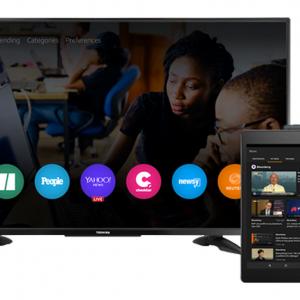Market Overview
Market Research Future (MRFR) says that by 2027, the Wound Care Market should cross USD 29,900 Mn, which will be a significant jump from the valuation it held in 2016 of USD 15,456.2 Mn.
Key Boosters and Deterrents
Wound care has emerged as a highly sought-after treatment for burn injuries, and the use of latest advanced products technologies ensure faster recovery with low to no complications. The growing availability of high-performance wound care devices and their heightened demand for treating burns, ulcers and more has been favorable for the global market. Advances in wound care also foster market growth, with several players spending copious amounts on RD activities to create quality wound care biologics devices.
Escalating cases of burn injuries, especially in developing as well as underdeveloped nations have raised the demand for wound care. Brazil and Africa have significant number of burn patients and therefore, offer remunerative opportunities to global companies striving to gain entry. Innovations in skin tissue engineering have augmented its use by doctors. Bioengineered skin as well as substitutes are some of the most essential tools that facilitate effective reconstructive surgical procedures, which are the ideal alternatives to skin grafts.
The burden of diabetes has been mounting exponentially among almost every age, resulting from obesity, bad eating habits and lack of exercise. The International Diabetes Federation says that in the year 2019, nearly 4.2 million lives were lost globally owing to diabetes. Surging incidences of chronic wounds, particularly foot ulcers among diabetic patients have also created favorable avenues for the wound care industry. Hence, rising focus on developing better quality treatment lines, combined with the massive burden of various diseases will benefit the wound care market in the long run.
Request For Free Sample Copy :https://www.marketresearchfuture.com/sample_request/926
Market Segmentation
Product, type, application, and end-user are the primary segments outlined in the MRFR study, with the aim to offer an extensive framework of the global industry.
The products examined in the MRFR report include Traditional and Active Wound Care Products, Wound Therapy Devices, and more. Wound therapy devices like Negative Pressure Wound Therapy (NPWT) devices, pressure relief devices and electric stimulation devices are highly effective at treating venous leg ulcers and diabetic foot. Hence, the escalating cases of these diseases should land the wound therapy devices segment in the lead over the following years.
Chronic and acute are the major segments, with respect to type of wound care. Acute wound care segment is currently at the top, owing to the surging incidences of burns and various traumatic events worldwide. The World Health Organization/WHO confirms that more than 1,000,000 burn cases are registered every year, mild or severe. As a result, the acute wound care segment should continue to thrive over the analysis period.
Applications of wound care include Trauma Wounds, Burn, Ulcers, and more.
Major end-users are trauma centers, clinics, hospitals and more.
Access Report @ https://www.marketresearchfuture.com/reports/wound-care-market-926
Regional Status
The market for wound care can be geographically segregated into MEA or Middle East Africa, Asia Pacific/APAC, North America, and Europe.
North America is the biggest gainer in the global market and will continue to maintain its winning streak throughout the given period. The wound care market in the region is strongly influenced by the presence of a well-established healthcare industry and the rising cases of chronic wounds. High burden of diabetes along with the steadily expanding elderly population prone to a number of chronic ailments benefit the regional market as well. Surge in burn injuries is another key growth booster. The American Burn Association reports that nearly 450,000 burn patients every year receive emergency room treatment. This kind of injury has turned out to be a major reason for unintentional deaths in the US, which has raised the demand for wound care in clinics and hospitals.
Europe will emerge as the second biggest market for wound care in the ensuing years, thanks the surging cases of diabetes and the availability of high-quality medical facilities. Substantial awareness level, rising adoption of the latest technologies, and the growth in chronic wound cases will also bolster the market size in the region over the following years.
The APAC market for wound care should procure the fastest growth rate in the next couple of years, primarily owing to the massive patient pool suffering from chronic disorders like diabetes. The biggest patient population resides in India and China, where the market is expected to perform well in the coming years. Thriving medical tourism sector in the region and the escalating number of foreign patients in view of the cost-effective treatment available in the region elevates the demand for wound care. The Brink Global Risk Center estimated that in the year 2017, close to 4 million tourists came to India for treatment, 3.5 million patients came to Thailand while 900,000 patients travelled to Singapore.
Top Firms
CanvaTec, Baxter, Smith Nephew, Ethican, Inc., 3M, Kinetic Concepts, Inc., B.Braun Melsungen AG are identified as some of the key manufacturers in the global market for wound care.
Related Report:
Pompe Disease Treatment Market Research Report – Global Forecast till 2025
Breathing Disorders Treatment Market Research Report – Global Forecast till 2025
Global Thalassemia Treatment Market Research Report—Forecast till 2025





